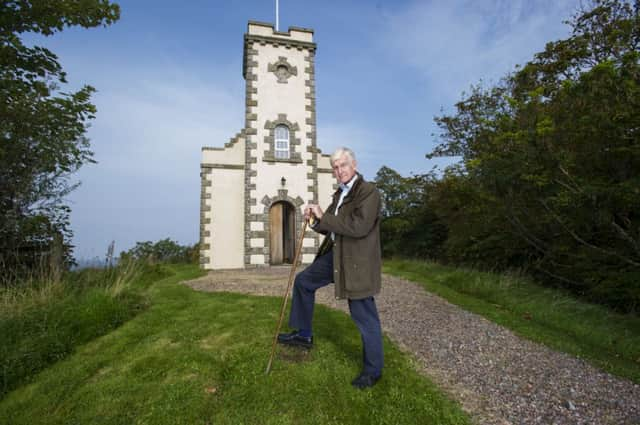Charter hopes to end scourge of absentee landowners


Scottish Land and Estates, which represents landowners across Scotland, believes it is essential to demonstrate clearly what good land ownership and management means, and set standards to which all landowners should aspire.
The group stressed that there are only a few isolated cases of bad practice within the sector, including absentee landlords.
Advertisement
Hide AdAdvertisement
Hide AdChairman David Johnstone said: “This commitment sends a clear message of what constitutes good practice in land ownership and provides a framework within which landowners can continue to deliver a range of benefits while demonstrating best practice at all times.
“There are those who take great delight in stigmatising private land ownership regardless of the overwhelming evidence of the positive contribution we make.
“Time and again we are reminded that the admirable efforts of the majority of landowners are undermined by a minority who make little or no effort to engage with their communities or the people they work with and live alongside.”
The four main pillars of the charter form a clear undertaking to be open, inclusive, enabling and responsible. But Community Land Scotland claimed the charter would make little difference to the changes they say are needed within the sector, and questioned whether it has been prompted by threatened changes to the Land Reform Act, which gives communities new purchase rights.
David Cameron, chairman of Community Land Scotland, said: “I really wish I could say this charter was likely to make the differences needed, but you have to ask how it will empower communities to develop the land on which they live and work and directly share the benefits of that development; how it will prevent land being bought and sold for the wrong reasons; and how it will give a community long-term stability when land passes from one generation or individual, to another.
“The commitment to work with communities on their aspirations when the landowner considers this “appropriate” reveals why many communities want instead to own their land.
“A recent study has shown that when this happens communities can deliver better outcomes than the past owner.”
Mr Johnstone said Scottish Land and Estate recognised there was scope for improvement in the way landowners operate in a modern Scotland, and that the charter was a “clear statement on how landowners should operate in their dealings with communities, businesses and tenants”.
CASE STUDY
‘This community has shown what can be done’
Advertisement
Hide AdAdvertisement
Hide AdDrimnin, on the western tip of the Morvern Peninsula, is a community clustered around the end of an 11-mile single track road overlooking the Sound of Mull.
A decade ago, the 7,000-acre Drimnin Estate, once the heartbeat of the local area, was in decline. Derek Lewis and wife Louise believed, acquired and invested in the estate and put the local community at the heart of that transformation. The restoration and development programme includes renewable energy objectives, affordable housing and a community-led distillery.
Mr Lewis, a former prison service chief in England and Wales, said: “In these remote areas it seems common sense to work in partnership whenever possible. These projects are a labour of love by the whole community and I think this community has shown what can de done.”
John Casey, a Drimnin resident and community councillor, said: “By getting heavily involved with the community at all levels and including everyone in plans and ambitions, Derek and Louise have shown that all-round benefit can be delivered.”